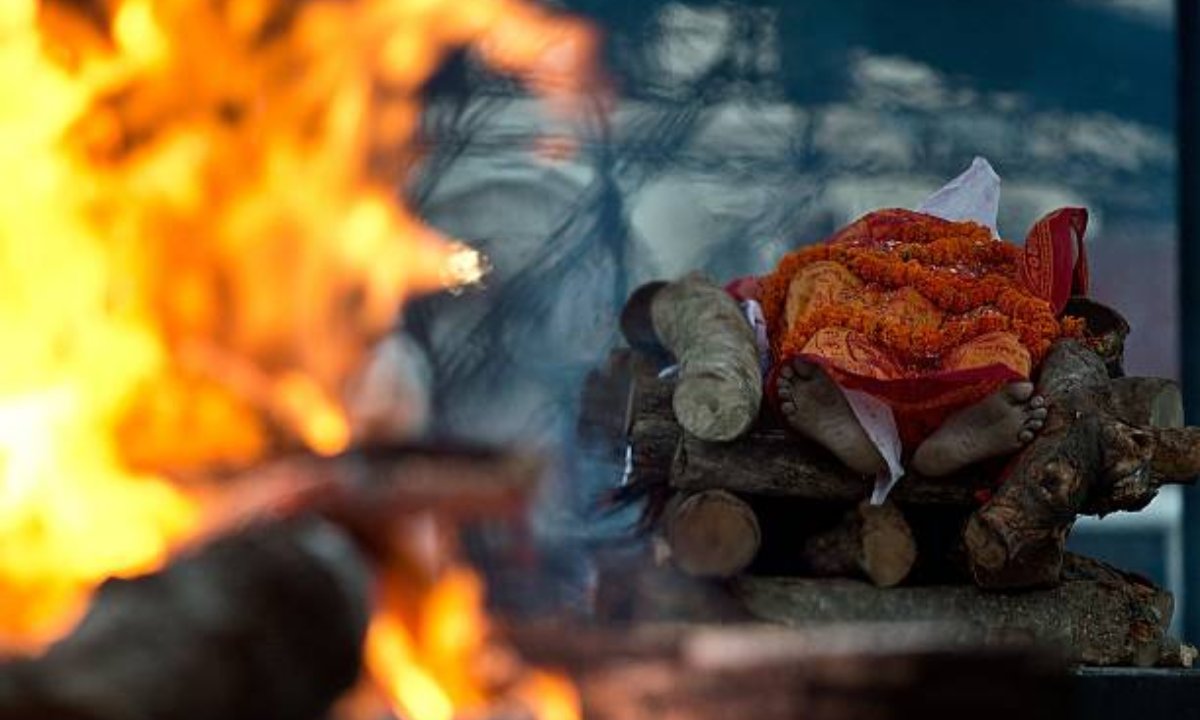Introduction:
Do you ever wonder what happens to us once we die? It’s a question that has intrigued humanity for ages and continues to evoke diverse perspectives, shaped by religious faith, philosophical point of view, and scientific theories. Along with the varied diverse beliefs and faiths that are practised all across the globe, Hinduism offers profound insights into the concept of life after death according to their ancestral texts and beliefs. It is considered to be the oldest religion known and has a population of over 80% in India. The teachings and rituals associated with death and the afterlife hold a deep significance in this ancient faith.
The Immortal Soul and the Cycle of Reincarnation:
Central to Hindu beliefs is the notion of an immortal soul, known as the ‘atman’, which transcends the physical body and endures even after death. According to Hindu philosophy, this eternal essence continues its journey through a cycle of birth, death, and rebirth.
Reincarnation is the fundamental principle that governs this process. The specific form and circumstances of each subsequent life are believed to be determined by the accumulated actions and moral attributes of the individual in their previous existence.
Karma and Its Role in Shaping the Afterlife:
A key factor in determining a person’s eternal destiny, i.e., the journey of life after death is the idea of karma. Karma refers to the accumulated actions, intentions, and consequences of an individual’s thoughts, words, and deeds. It is believed that one’s present actions and moral conduct influence the nature and duration of their future rebirths.
Positive actions, driven by selflessness, compassion, and righteousness, contribute to good karma, leading to a favourable afterlife and potentially closer proximity to achieving moksha, the ultimate liberation from the cycle of reincarnation. Conversely, negative actions, rooted in greed, hatred, and injustice, generate negative karma, which may result in unfavourable rebirths and prolonged suffering.
Moksha: Liberation from the Cycle of Rebirth:
The ultimate spiritual goal in Hinduism is the attainment of moksha, liberation from the cycle of birth and death. In order to achieve moksha, one must uncover their own divine nature and unite their inner soul with the cosmic soul, also referred to as Brahman.
It may be regarded as the highest form of spiritual liberation as it releases the soul from the limitations and bonds of the material or tangible world. Achieving moksha is believed to liberate the individual from suffering and desire, leading to eternal bliss and unity with the divine.
Funeral Rites and Rituals in Hinduism:
Given the profound significance of death and the afterlife in Hindu philosophy, funeral rites and rituals, known as ‘Antyesti’ or ‘Antim Sanskar’, are conducted with great care and reverence. You can contact trusted funeral service providers like Beleiv to ensure a dignified farewell to your loved ones. These customs aim to honour the departed soul, facilitate its transition to the next phase of existence, and support the grieving family.
Cremation and the Role of Agni:
In Hindu traditions, cremation is the most common method of disposing of the physical body after death. Cremation is a symbolic ritual that signifies the soul’s liberation from its earthly body and its transitioning journey into the spiritual world.
The element of fire, represented by ‘Agni’, the god of fire, plays a crucial role in this process. It is believed that Agni acts as a messenger, carrying the soul from the mortal realm back to its origin in the earth, thus facilitating its onward journey.
Purification and the Role of Water:
Water holds immense significance in Hindu funeral rituals, serving as a purifying element for both the body and the mourners. The body is traditionally bathed and cleansed before cremation, signifying the removal of impurities and preparing it for its final journey. Additionally, the sacred waters of the holy rivers which are believed to possess purifying properties, are often used in the ritual washing of the deceased and are central to certain funeral services.
The Shraddha Ceremony:
Hindus perform the Shraddha ritual to commemorate and remember the soul of the departed. It is one of the essential components of post-funeral practices. This ritual often occurs on certain dates throughout the year that coincide with the lunar calendar and the loved one’s death anniversary. During the Shraddha, offerings of food, water, and prayers are made to seek blessings for the onward journey of the deceased.
Pinda Daan and Ancestor Worship:
An essential aspect of Hindu funeral rituals involves the practice of Pinda Daan, the offering of rice balls to ancestors. These offerings are believed to nourish and satisfy the departed souls, ensuring their well-being in the afterlife. Ancestor worship is deeply rooted in Hindu culture, and that is reflected in their customs and traditions.
Final Judgement and Rebirth:
According to Hindu culture, the departed soul travels to the deity of death, The Yama, who is in charge of the last judgement. In this space, past actions and the ‘karma’ of the soul are evaluated, determining its fate in the afterlife. Based on the judgment, the soul may experience rewards or punishments in various realms, ranging from heaven (svarga) to hell (naraka). Once the soul has paid its karmic debts and experienced the implications of its acts, it is ready for reincarnation in a new bodily state, thereby continuing the cycle.
Conclusion:
The exploration of Hindu beliefs on life after death provides us with valuable insights into the intricacies of this ancient faith. The concepts of the immortal soul, reincarnation, karma, and moksha shape the Hindu perspective on the afterlife, offering solace, hope, and a roadmap for spiritual evolution.
The funeral rites and rituals associated with death in Hinduism encompass a rich mix of customs and practices aimed at honouring the departed soul, guiding its journey, and providing comfort to the grieving family. These rituals reflect the deep reverence towards Hindu beliefs.
To bring peace and solace to your departed loved one, it is important to conduct the funeral rituals according to your beliefs. In times like these, service providers like Beleiv can assist you in organizing all the necessary ceremonies, ensuring a dignified funeral service for your loved one.




